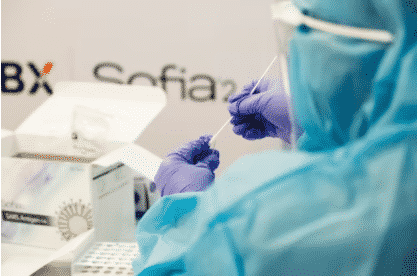A recent study has revealed that global COVID-associated plastic waste currently totals a whopping 8.4 million tons. Researchers from Nanjing say “The Covid-19 pandemic has led to an increased demand for single-use plastics that intensifies pressure on an already out-of-control global plastic waste problem.”
The study, conducted by a team of global researchers and published in PNAS, showed just under 26,000 tons of the waste have entered oceans worldwide. This was primarily through major rivers like Shatt al-Arab in south-eastern Iraq, the Indus, and the Yangtze.
The pandemic has significantly increased dependency on online shopping often packaged in plastics. Furthermore, many countries including the US, UK, Canada and the EU have taken measures to ease single-use plastic bans during the pandemic.
But the vast majority of global plastic waste is in the form of medical waste from hospitals, constituting 73% of the total. Individual PPE usage contributed only 7.6% of the total, with packaging and test kits making up 4.7% and 0.3% respectively. Asia is responsible for the largest contribution of waste, with 72% of global discharge.
Australia’s healthcare sector was already battling a massive waste problem as it transitioned to single-use versions of previously reusable items like surgical gowns and tweezers. COVID has increased the scale of the problem exponentially.

Dr Forbes McGain says “A nurse may go through 30 gowns in one day. That’s just standard.” Some hospitals had seen waste streams soar by between 25 to 130 per cent during the pandemic.
There have been some sustainability initiatives in the country, like a pilot project turning syringe caps into wind turbine parts. Dr Forbes himself pushed to bring back reusable anaesthesia equipment at Sunshine Hospital – saving each operating theatre $5000 per annum.
Nonetheless, the healthcare system is under enormous pressure and unfortunately, waste is simply not a priority at the moment. “It’s very difficult, especially in a pandemic, to act quickly and deal with it,” Dr Forbes says.
Follow Maddie’s journalism journey on Twitter.